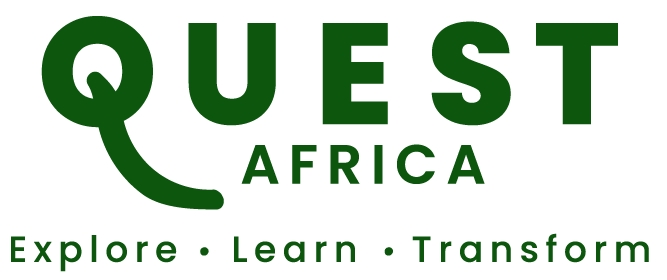-
- Introduction
At Quest Africa, diversity and inclusion are fundamental to our mission of crafting transformative travel experiences. We recognize that by hosting gap year students, teens, and diverse individuals from around the globe, we have a unique opportunity to foster understanding, connection, and respect across cultures. This policy outlines our unwavering commitment to creating an inclusive, accessible, and equitable environment for participants, staff, and the communities we work with.
Vision for Diversity & Inclusion
We aim to create a world where immersive travel bridges divides, celebrates differences, and empowers individuals to cultivate global citizenship. By integrating diversity and inclusion into every aspect of our operations, Quest Africa seeks to inspire meaningful connections and sustainable impact, leaving every participant and community enriched.
Policy Scope
This policy applies to:
- Participants (students, teens, gap year travelers, etc.)
- Quest Africa staff, guides, and facilitators
- Partner organizations and community stakeholders
- Service providers and contractors
Core Commitments
- Inclusive Program Design
- Culturally Relevant Experiences: Programs are co-created with local communities to ensure they honor and authentically represent their traditions, history, and perspectives.
- Customizable Offerings: We accommodate diverse learning styles, physical abilities, and cultural or religious practices to ensure every participant feels included.
- Representation in Delivery: We actively engage guides, facilitators, and experts who reflect the cultural richness and diversity of the regions we work in.
- Equal Opportunities
- Participant Access: Through scholarships, partnerships, and financial aid programs, we aim to make our experiences accessible to underrepresented groups.
- Staff Recruitment: We prioritize hiring individuals from diverse backgrounds and communities to ensure representation and enrich perspectives across leadership and operational roles.
- Zero Tolerance for Discrimination: Quest Africa unequivocally opposes discrimination based on race, ethnicity, gender identity, sexual orientation, age, religion, disability, or socioeconomic status.
- Safe and Respectful Environments
- Cultural Sensitivity Training: All staff and participants receive training in cultural competence, unconscious bias, and respectful communication.
- Code of Conduct: Clear guidelines outline expected behaviors, emphasizing respect, empathy, and accountability for all stakeholders.
- Support Channels: Confidential reporting mechanisms allow participants and staff to raise concerns related to discrimination, harassment, or exclusion.
- Empowering Local Communities
- Mutual Collaboration: Programs are co-designed with local leaders to ensure that the community’s priorities, traditions, and perspectives are respected.
- Economic Equity: We provide fair compensation to local partners, artisans, and service providers to ensure equitable benefits from our operations.
- Community Capacity Building: Through initiatives like skill-sharing workshops and infrastructure development, we support long-term community resilience.
- Accessibility
- Physical Accessibility: We ensure that our programs, accommodations, and activities are inclusive of individuals with physical disabilities.
- Dietary and Religious Inclusivity: Meals, accommodations, and schedules are tailored to meet diverse dietary needs and religious observances.
- Language Support: We provide materials and guides in accessible language, with translation or interpretation services where needed.
- Environmental and Social Sustainability
- Responsible Tourism Practices: Our programs minimize environmental impact while supporting community-driven conservation efforts.
- Social Impact Reporting: We transparently communicate how our operations positively impact local communities and ecosystems.
Implementation Strategy
- Recruitment and Training
- DEI Training: Comprehensive diversity, equity, and inclusion (DEI) training for all staff ensures cultural competence and equitable practices.
- Inclusive Hiring Practices: Job descriptions and outreach efforts aim to attract diverse candidates, with structured interviews to reduce unconscious bias.
- Program Accessibility
- Pre-Program Orientations: Participants are educated on local customs, Quest Africa’s inclusivity principles, and guidelines for respectful engagement.
- Flexible Design: Programs adapt to accommodate participants’ unique needs, including those with disabilities or specific cultural practices.
- Community Engagement
- Partnerships with Local Organizations: We collaborate with grassroots organizations and NGOs to ensure inclusivity and alignment with community priorities.
- Feedback Loops: Continuous input from local stakeholders informs program refinement and ensures mutual benefits.
Monitoring and Accountability
- Data-Driven Evaluation
- Collect and analyze data on participant demographics, feedback, and program outcomes to assess the effectiveness of inclusivity initiatives.
- Establish measurable goals for increasing diversity among participants and staff.
- Feedback Channels
- Provide anonymous and accessible platforms for participants, staff, and community stakeholders to share concerns or suggestions regarding diversity and inclusion.
- Actively incorporate feedback into ongoing improvements.
- Transparency
- Publish annual Diversity & Inclusion Impact Reports to share progress, highlight challenges, and outline future commitments.
Evaluation Metrics
To ensure the success of this policy, Quest Africa will track:
- Participant Diversity: Representation across gender, ethnicity, socioeconomic backgrounds, and geographic origins.
- Staff and Partner Representation: Diversity metrics within leadership, guides, and collaborators.
- Impact Metrics: Community project outcomes, participant satisfaction scores, and inclusivity ratings from feedback surveys.
Enhancements Based on Best Practices
From a review of similar policies, Quest Africa integrates:
- Measurable Diversity Goals: Regular reviews of participant and staff demographics to identify progress and areas for improvement.
- Enhanced Accessibility: Commitment to universal design principles, ensuring physical and digital spaces are inclusive of all abilities.
- Celebration of Milestones: Regularly highlight achievements in DEI through newsletters, events, and reports to maintain momentum and stakeholder engagement.
- Sustainability Synergy: Emphasize the intersection of diversity and environmental sustainability by showcasing the equitable use of resources in programs.
Conclusion
Diversity and inclusion are more than policy objectives at Quest Africa—they are integral to our mission of connecting people, cultures, and environments through transformative travel. By fostering an inclusive environment for participants, staff, and communities, we create experiences that inspire connection, growth, and meaningful impact. With this policy, Quest Africa reaffirms its commitment to setting the standard for socially responsible and inclusive travel.
- Introduction

